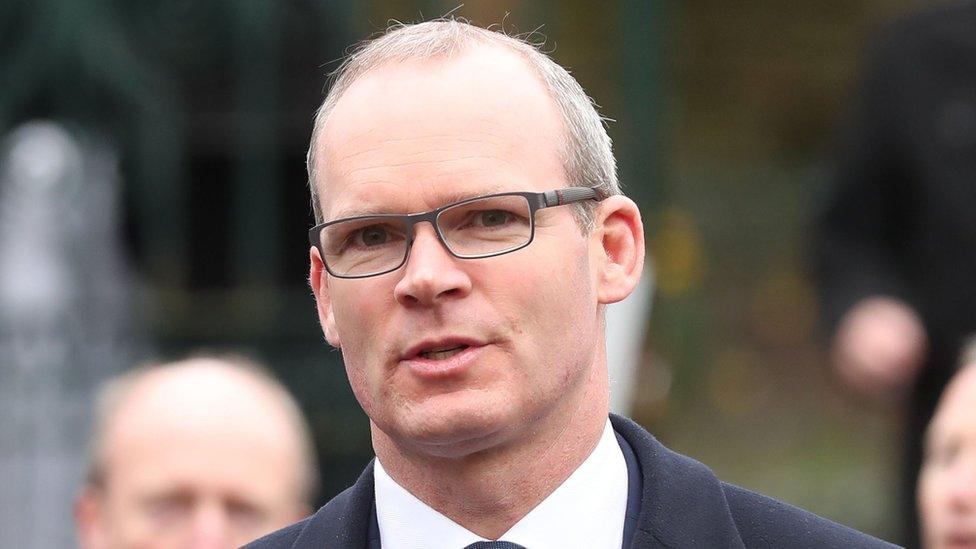Stormont power-sharing talks enter final phase
- Published
- comments
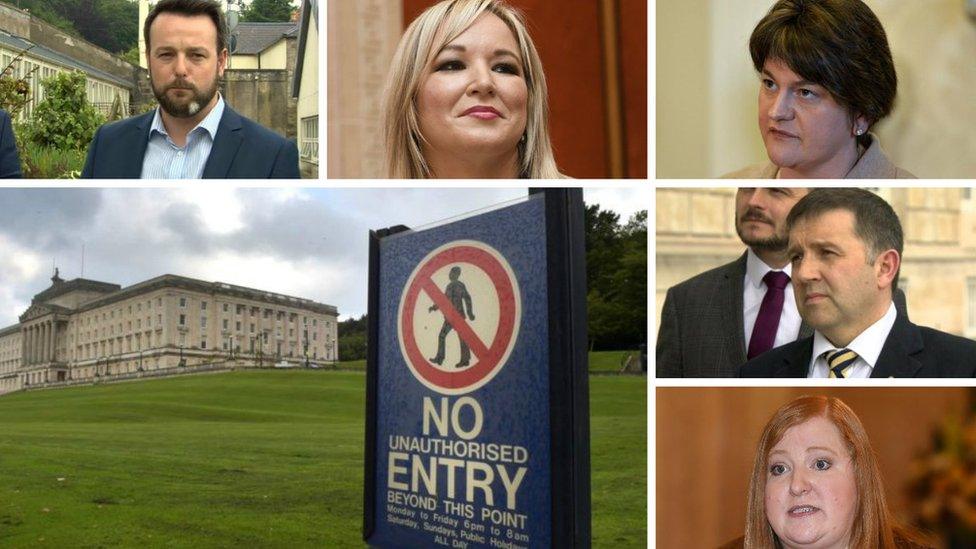
Thursday is the deadline for a deal on restoring power sharing
Northern Ireland's political parties are in intensive discussions to restore power-sharing at Stormont.
Talks began at 14:00 BST and the deadline for a deal is Thursday.
NI Secretary James Brokenshire said there had been intensive engagement on issues such as equality and languages, but the coming hours were crucial.
Stormont parties have been warned that if they cannot reach agreement on restoring the government, direct rule from Westminster could follow.
A sitting of the assembly has been scheduled for Thursday at noon which could involve the election of a first and deputy first minister - but only in the event of a deal.
Blank cheque for brexit?
Key sticking points at the talks include a botched green energy scheme, legislative protections for Irish language speakers, legacy issues and Brexit, says BBC News NI Political Editor Mark Devenport.
Sinn Féin Chairman Declan Kearney said on Tuesday afternoon the DUP had not moved on any fundamental issues, adding that a "free-standing" Irish language act was pivotal to the progress of the talks.
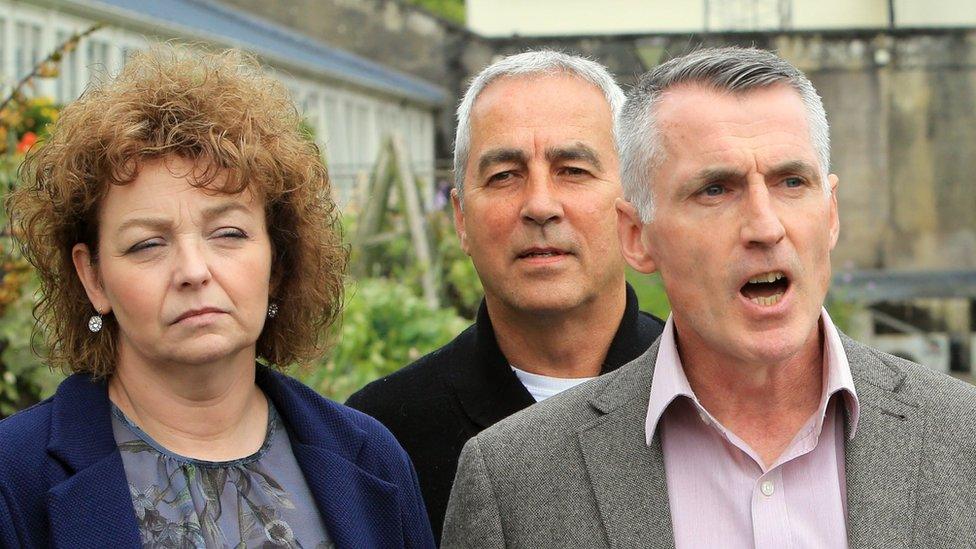
Sinn Féin chairman Declan Kearney (right) gave a pessimistic view of the talks to reporters
DUP negotiator Edwin Poots encouraged Sinn Féin to "come back from brink" and not engage in "high-wire acts".
If a deal cannot be reached, then a parallel process could take place with Stormont re-established on Thursday while talks continue, he added.
Alliance Party leader Naomi Long said the situation was looking "incredibly bleak".
She said the issues were "entirely surmountable" and it just required the parties to sit around the table and "do business together in a rational and reasonable way".
Negotiations intensified after a separate deal was announced between the Conservatives and the DUP at Westminster, resulting in an extra £1bn in public spending in Northern Ireland.
DUP leader Arlene Foster said that the agreement would help "boost the economy and invest in new infrastructure".
Sinn Féin said the deal was a "blank cheque for a Tory Brexit" but any money coming to NI was a "good thing".
It has argued Mrs Foster cannot return as First Minister while a public inquiry into a botched green energy scheme is ongoing.
Sinn Féin's Martin McGuinness stood down as deputy first minister in January over Mrs Foster's handling of the Renewable Heat Incentive scheme, in a move that collapsed the institutions and triggered a snap election in March.
But the parties have failed to restore power sharing since that vote.
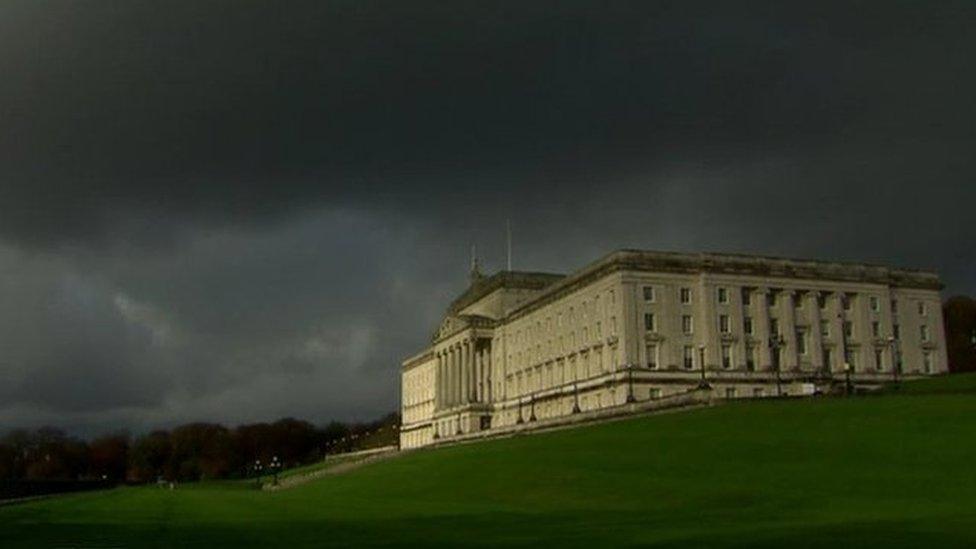
If parties cannot agree a deal by Thursday, then direct rule could be implemented
Speaking in London on Monday, the DUP's Nigel Dodds said his party wanted to see the executive "up and running" and had set no "red lines, no pre-conditions".
He added: "Let's get on with the job, if Sinn Féin continue to mess about, I think they will pay a heavy price."
'Questions to answer'
Former DUP first minister Peter Robinson said it was "entirely legitimate" for Sinn Féin to press for an Irish Language Act, but called for equal statutory protection for Ulster Scots.
Ulster Unionist Party leader Robin Swann pointed a finger at Sinn Féin for seemingly "causing the stumbling blocks" in negotiations.
"Unless that intensification process delivers today and, I suppose, maybe even later into the night, I think we're not looking at the return of the devolved institutions in this period and I think that's a very dangerous place to be in," he said.
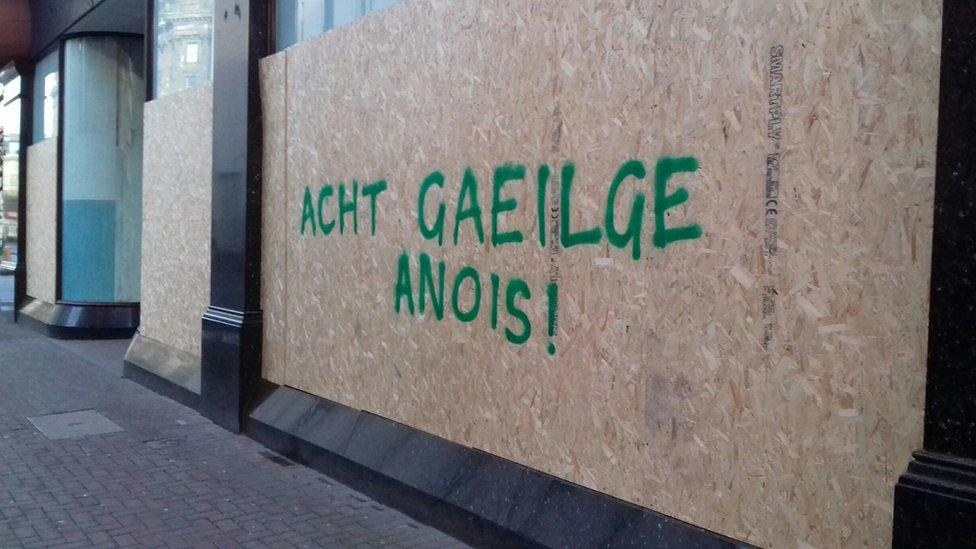
Graffiti in Belfast calls for an Irish language act
The SDLP's Colin McGrath said his party wanted to see "locally devolved institutions", but that the DUP and Sinn Féin had questions to answer.
"We're constantly told by the DUP and Sinn Féin it can be done in a day, told that the whole way through the process. So we have to ask at this stage, what is taking so long?"
The UK and Irish governments are involved in the Stormont talks as co-guarantors of the Good Friday Agreement.
Irish Foreign Minister Simon Coveney warned that as parties may have to consult supporters on a deal, talks should be concluded by Wednesday morning.
Taoiseach (Irish PM) Leo Varadkar said he was more optimistic than pessimistic that an agreement would be reached.
Mr Varadkar and UK Prime Minister Theresa May spoke on the phone on Tuesday, where they discussed the ongoing talks, and the supply and confidence agreement between the Conservative Party and the DUP.
"The two leaders also spoke about their willingness to continue close cooperation as the UK embarks on leaving the European Union," a No 10 spokesman said.
- Published27 June 2017
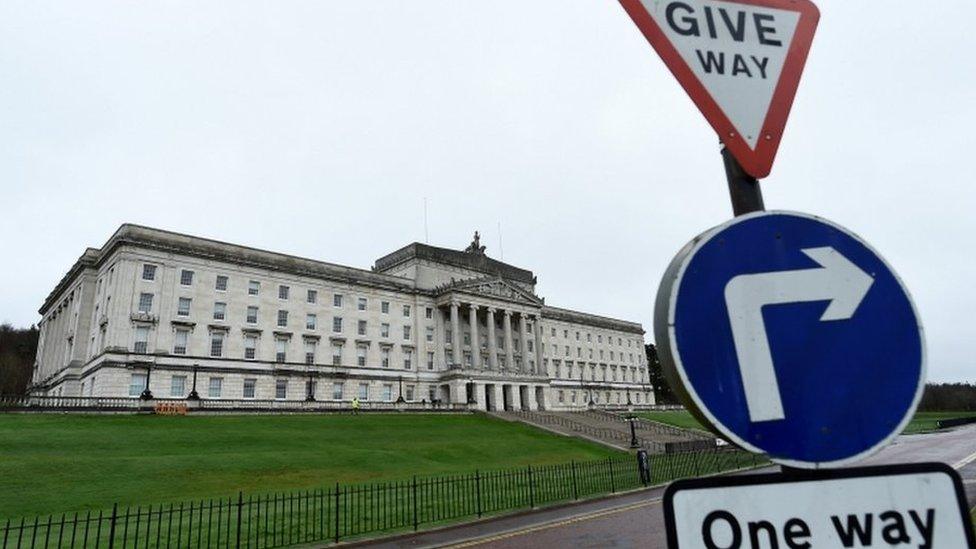
- Published26 June 2017
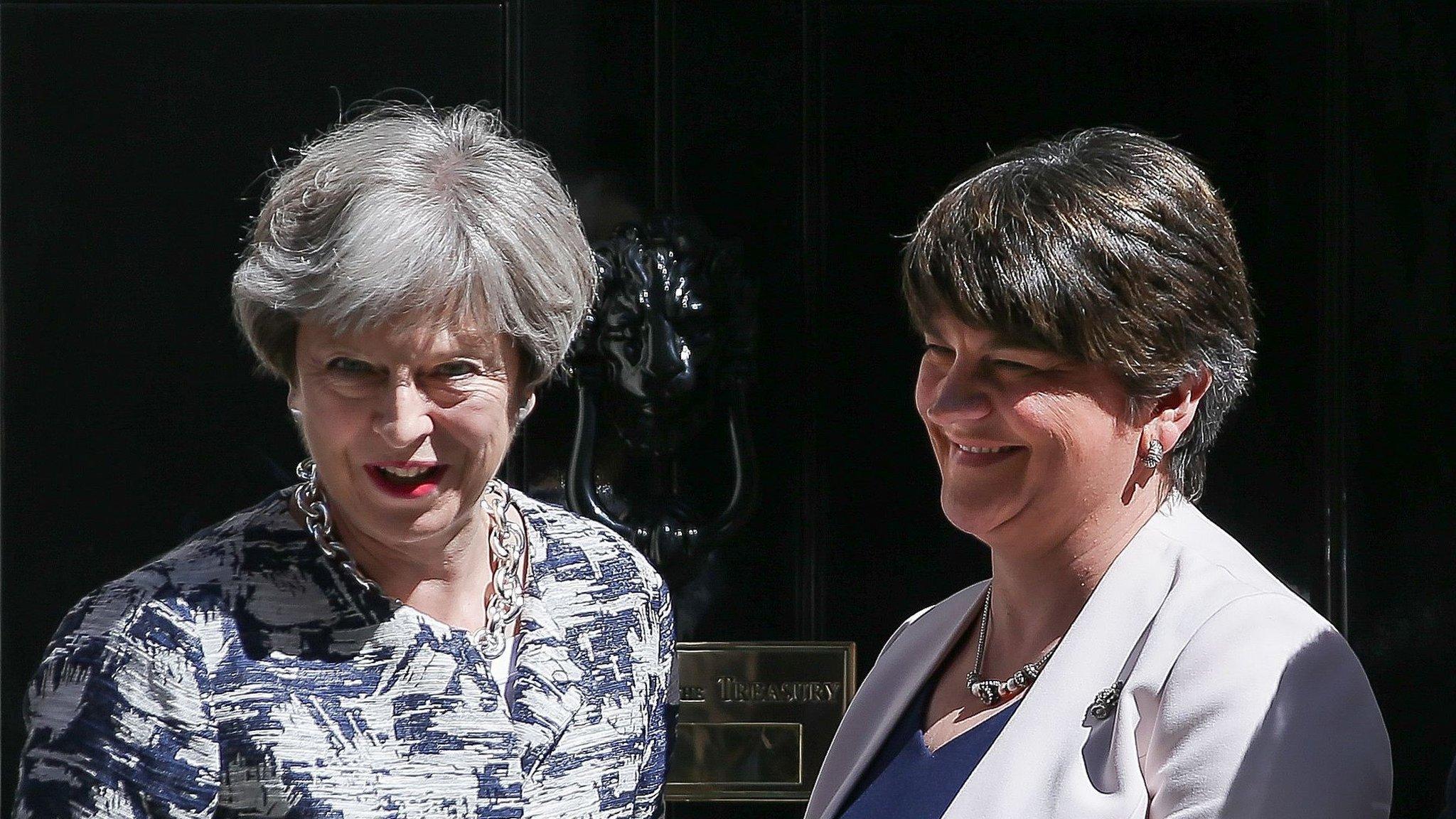
- Published23 June 2017
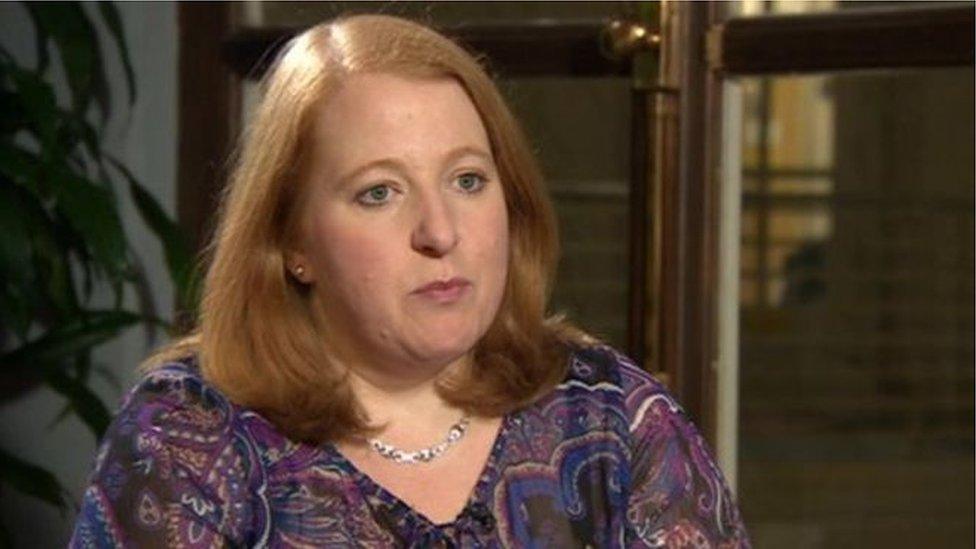
- Published22 June 2017
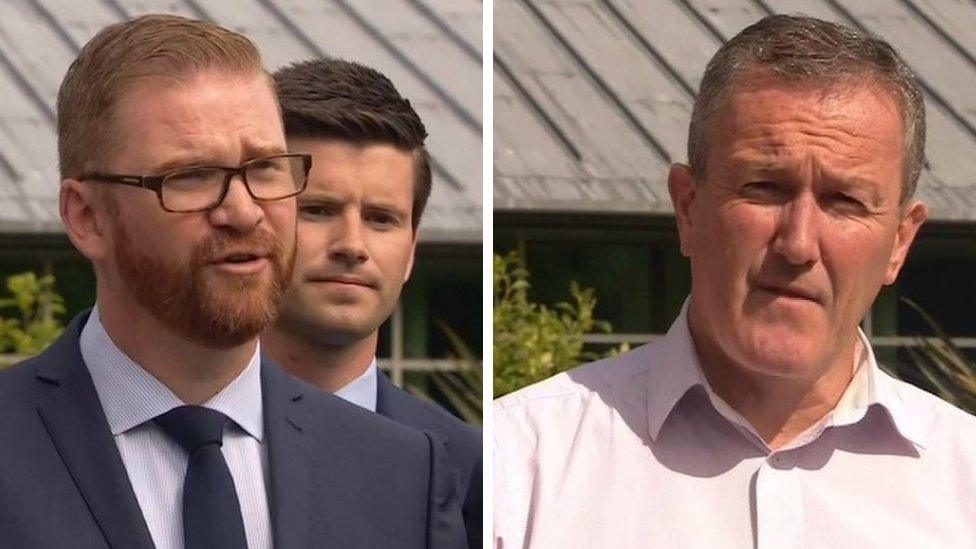
- Published19 June 2017
